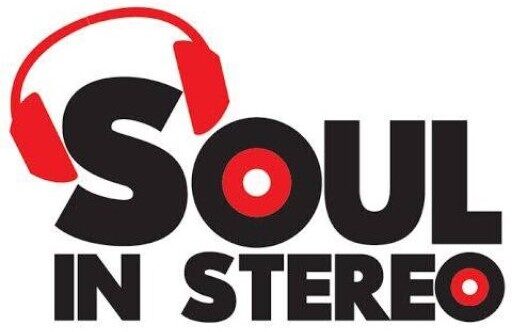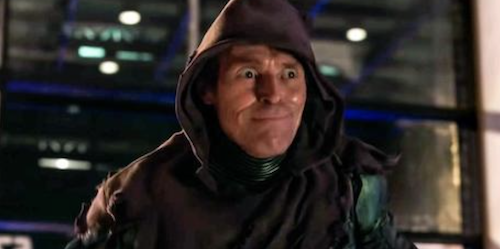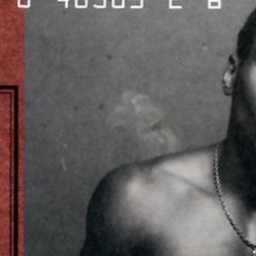Y’all ready to relive Y2K? All year long the Rewind column will revisit the year 2000, celebrating great releases that will mark 25 years in 2025. I’ll be joined by a host of old friends as we look back at a new millennium of music.
Twenty-five years ago today, hip-hop received another classic. By 2000, Eminem was already seen as one of the more controversial figures in the game, but he took things to another level with The Marshall Mathers LP, a thrilling (and often appalling) look at a man thrust into fame. But how well does it age in 2025? Ron Grant is back to chop it up with us.
Ron’s The Marshall Mathers LP song ranking
1. “Stan”
2. “The Way I Am”
3. “B**** Please 2”
4. “I’m Back”
5. “The Real Slim Shady”
6. “Remember Me?”
7. “Kill You”
8. “Amityville”
9. “Under the Influence”
10. “Marshall Mathers”
11. “Who Knew”
12. “Criminal”
13. “Drug Ballad”
14. “Kim”
Edd’s The Marshall Mathers LP song ranking
1. “Stan”
2. “Marshall Mathers”
3. “The Way I Am “
4. “Kim”
5. “Under the Influence”
6. “B**** Please 2”
7. “Kill You”
8. “Remember Me?”
9. “I’m Back”
10. “The Real Slim Shady”
11. “Amityville”
12. “Criminal”
13. “Who Knew”
14. “Drug Ballad”
What do you remember about first hearing this album?
Ron: I first heard the album in its entirety while attending a Senior Skip Day on Belle Isle in Detroit just weeks before my high school graduation. With The Slim Shady LP having gone nuclear the year prior, everyone I knew was anticipating what Em was going to do on the follow-up, and “The Real Slim Shady” was already playing from every car radio at the time. I’ll be honest in saying that I didn’t like Marshall Mathers as much as Slim Shady at first. It seemed to me like Em was treading similar waters. How many viscerally violent songs about your ex can you sell to the music-buying public? Besides, 2000 was such a crowded yet memorable year for hip-hop and pop music. But going to buy the CD to give it a few more listens, I started to connect with the way Em was struggling with new success, new fans, new pressures and comparisons to other hip-hop and pop artists, and that’s what helped me open up to Marshall Mathers.
Edd: I’m probably gonna lose a lot of my Old Head Hip-Hop cred on this one but it’s only been in the past 10 years or so that I heard this album in full. While I greatly appreciated Em’s lyrical acumen and storytelling chops in real time, I never purchased his music – mainly because his music was so EVER PRESENT, especially by 2000. He was mainstream America’s most hated rapper, which meant he was mainstream radio’s most played artist. His singles wore me out, especially “The Real Slim Shady,” which still triggers my PTSD. When I finally copped album in the early 2010s (probably discounted at FYE) I was surprised by how much I enjoyed. Sure, the edge of his shock songs had dulled but I remained captivated by his breath control, his ability to paint lyrical pictures and, surprisingly, his depth. I knew he was good, but I didn’t know he was THIS good.
Talk about your pick for best song.
Ron: “Stan”
I’d be a bold-faced liar if I said anything besides ‘Stan’. Eminem is known for a ton of massive hits and deep cuts that range from raunchy to hilarious to thought-provoking to disturbing to downright shocking. But to this day, there’s nothing in his catalog that hits quite as hard as “Stan.” It’s exposed, chaotic, heartbreaking and masterful all at once. Come to think of it, when you listen to the songs back-to-back, you could make the argument that “Stan” is a sequel to “Rock Bottom” from The Slim Shady LP. Much of Marshall Mathers is a product of its time. But “Stan” is timeless because it isn’t afraid to show how both artists and fans can potentially succumb to the dangerous, unsettling side of music and how it can take a toll on the most vulnerable of us.
Edd: “Stan”
“Stan” by a country mile. Well, that’s not fair – “The Way I Am” and “Marshall Mathers” are excellent in their own way, but the intricate storytelling of “Stan” puts it into a league of its own. The brilliant use of the Dido’s “Thank You” was the perfect compliment for the track’s ominous tone (and keep in mind, the Dido song was just a couple of years old at that point). This song is so much more than Eminem being all weird n’ wacky, it’s a fascinating take on celebrity culture and identity, one that resonates so strongly that “stan” has become a household term.
Best production goes to…
Ron: “B**** Please 2”
I have to go with “B**** Please 2.” If it’s a cop out … whatever. Sue me. But there’s something about Dre and Mel Man’s production on this track that simultaneously starts closing the album out and brings the whole thing together through one of the most underrated posse cuts of all time. The production throughout Marshall Mathers ranges from quirky and off-kilter to sinister, gritty and haunting. Which would make you think that the slickness and laid-back West Coast thump of “B**** Please 2” would stick out like a sore thumb. Not so. It provides a moment of levity for Dre, Xzibit, Snoop, Em and Nate Dogg to let loose and act a fool on. In its own way, a cleaned-up, radio version of “B**** Please 2” could have been another single from Marshall Mathers.
Edd: “Stan”
I gotta go back to “Stan” and that Dido sample. It’s the little things. When Em heard Dido sing “picture on my wall,” he thought about fans who obsess over his antics. It became part of this song’s story. The heavy raindrops that set the mood, the pencil scratches as Stan writes his creepy letters – every second of this beat is crafted to advance to story. That level of intricate storytelling – down to a sonic level – is unheard of today. Those are the makings of a classic.
We got several memorable videos from this project, but which one stands tallest?
Ron: “The Way I Am”
My vote goes to “The Way I Am.” “The Real Slim Shady” carried the weight of being the video for the first single and continued the goofy yet bleak humor found in the music and imagery of The Slim Shady LP. And the video for “Stan” saw Em going into full Thriller mode with a tragically messed up short film that complimented the song perfectly. But the visuals for “The Way I Am” saw Eminem being more gripping and personal than ever as he spat bars alluding to his frustration with the pressures of hip-hop and pop stardom while falling to his apparent death (but thankfully not.) I’d go as far as to say that this song and video took influence from Geto Boys’ “Mind Playing Tricks on Me” and Biggie’s “Suicidal Thoughts” and helped influence artists like Lil Wayne, Kendrick, Mac Miller and Juice WRLD to rhyme more about mental health and industry struggles.
Edd: “Stan”
I swear I’m gonna stop talking about “Stan” at some point, but once again, nothing beats it in my eyes. The track already plays out like cinema, but adding visual to the experience makes the events even more harrowing. Em’s realization of Stan’s identity, from the crime scene to the gravesite, is chilling. Truly one of the most powerful videos of its era.
What’s the most underrated song?
Ron: “Amityville”
I’m going to go with “Amityville.” It’s one of those bops that’s very sneaky and ominous: the beat is so infectious that it has you bobbing your head immediately, while you’re eventually catching yourself and asking, “Wait, did he just say that??” I mean, the line about the grin full of chapped lipstick was probably kind of wild for a few fans back in 2000. And Bizarre’s verse is even more unhinged! But that’s the great thing about this song: as captivating as the production is, it’s also bleak, intimidating and funky as hell.
Edd: “Marshall Mathers”
FINALLY I can stop talking about “Stan!” But instead let’s talk about another creepy song! I had never heard of “Marshall Mathers” until I copped the CD back in the 2010s and that surprised me because it’s one of the best diss records of its era. Em sounds equally weary and infuriated as he unleashes his wrath. The Insane Clown Posse get absolutely obliterated on this thing. But it’s more than just mindless beef and bullying – it’s a portrait of a man frustrated by fame. He’s angry that legends like 2pac and Biggie were taken too soon while inferior imitations take their spot. He’s tired of being XXL’s whipping boy and fake family members smiling in his face. It’s a vicious critique of the burdens of stardom.
What’s the most memorable bar on this project?
Ron: I’ll give it to Em’s bar about halfway through the first verse on ‘I’m Back’:
I used to give a f***, now I could give a f*** less
What do I think of success? It sucks, too much press
I’m stressed, too much cess, depressed, too upset
It’s just too much mess, I guess I must just blew up quick (Yes)
For one thing, this bar brilliantly sums up The Marshall Mathers LP in just a few quick punches: while grateful and honored for the newfound success, Em is struggling with how to cope with being the biggest name in hip-hop and an instant celebrity known the world over. For another, it’s a bar so strong that Jay Z to co-opted it seven years later on American Gangster’s “Success.” Finally, it proves that Em is a master of cadence and voice/word manipulation because it’s delivered with a forceful nonchalance that few can do as effortlessly as he can.
Edd: Yep, Ron got it right. “What do I think of success? It sucks” is the defining message of this project. From the dark side of hero worship on “Stan,” to Em grasping for normalcy on “The Way I Am” to his weariness of everything and everybody on “Marshall Mathers,” MMLP is a portrait of a man trapped by stardom with no way out. Like he said, it sucks.
In hindsight, did songs like “Kim” and “Kill You” go too far? Or is it just artistic expression?
Ron: When I reflect on The Marshall Mathers LP, I admit that much of its content hasn’t aged well. The material is often crude, crass, insulting, visceral, violent, and sometimes mean. However, I think that one of the album’s central themes is that Eminem pushed his art to the extreme to make a point, while also making it clear that his words and lyrics should not be taken at face value. And that’s what ultimately made it a great album. Songs like “Kim” and “Kill You” are just two examples of these extremes, as the album is filled with disturbing content. And Eminem doesn’t get a free pass just because it’s music. Still, as much as we hate to admit it, we must acknowledge that there is a level of personal responsibility involved in consuming and supporting art, especially art as polarizing as Marshall Mathers was.
Edd: Andddd, this is the moment in the retrospective where y’all cancel me for good. But I gotta keep it real, as always:
I never had a major problem with Em’s most salacious songs. Even something as horrible as “Kim.”
Hip-hop has always leaned toward the extreme, especially on the underground battle circuit, where MCs said the wildest stuff to illicit the biggest reactions. Think about Biggie’s infamous line from “Me and & B****” where he claimed his girl was so attractive he’d do … things to her father. Obviously he wasn’t REALLY going to do that, it was an intentional technique – using shock value to make the most mundane lines unforgettable.
Em, who cut his teeth on the same battle rap battlefield, took a similar approach, using his Slim Shady persona to say and do all the things little ol’ Marshall wouldn’t dare. Frustrated with his girlfriend? Pissed off with so-so pop music? Sick of drama with his mom? Well, he used his rap alias to push his frustrated fantasies over the edge.
No, John Q Hotep and Little Miss Thinkpiece, I’m NOT justifying the content of those songs. In fact, even Em himself notes that his outbursts are meant as entertainment and are taken too seriously by impressionable minds – see the last verse of “Stan.” Still, Em may not mean for his rants to be taken literally, but we know they often are. Ron is right, every performer has to take responsibility for the images they put out in the world. Just because those images don’t personally offend me doesn’t mean others won’t be hurt by them.
Let’s talk about the legacy of “Stan.” In your opinion, how has this song influenced Hip hop culture?
Ron: At the time, “Stan” was a groundbreaking experience in hip-hop for me. It told a tale of obsession, fragile mental health, and the deterioration of a fan who felt disconnected from life and left behind, clinging to a nonexistent relationship with a music star. Em took a significant risk with this song, but its vulnerability and relatability more than paid off culturally. The irony of “Stan” being intended as a cautionary tale yet helping to birth what we now know as “Stan culture” is evident throughout hip-hop and pop music. And I don’t count the explosion of social media that was on the horizon a few years later as a mere coincidence. While I don’t think we should give too much credit or blame to the song for anything, it’s worth pondering if we’d have obsessive fandoms like the Bey-Hive, Little Monsters, the Barbs, etc., without it.
Edd: Seeing that I’ve referenced “Stan” about 50-leven times in this post, you can tell that it’s had a profound affect on me, and likewise, it has become a terrifying reflection of our current culture. I’m so serious when I tell y’all I get daily hate mail (or worse) from the Barbs, Kanye’s Krappy Krew, the Court of Owls, and yes, even the Beyhive (they’re VERY angry that I gave Renaissance the dreaded 3.5 stars of doom all these years later). But Em predicted this level of celebrity worship, which has risen to horrifying levels in modern society. And it’s not just music – everything from podcasts to politics (sigh, especially politics) have been infested with an us vs them mindset, with a fanatical devotion to their “faves.” The irony is that “Stan” was supposed to be a cautionary tale warning about the dangers of this mindset, now “stans” find solace in their madness. It’s not just a song, and it’s not just a term on urban dictionary, for many it’s a way of life.
I’m as depressed as Eminem now.
Is The Marshal Mathers LP Eminem’s best album?
Ron: Personally, I don’t think so. I think Em challenged himself, took more risks and made an even better album with his follow-up, The Eminem Show. But while that album might have been a better body of work, The Marshall Mathers LP was a much bigger music and cultural moment that had everybody from Detroit street dudes to suburban soccer moms to D.C. Congressman talking, and with good reason. It was one of those albums that you simply couldn’t get away from because it seemed to dominate BET, MTV and all of radio. And honestly, I don’t think any of us really wanted to get away from it or miss out on such a huge musical moment.
Edd: Yep, it’s his best. I know many, including Ron, look to The Eminem Show – you can make the case for it being the more well-rounded release. But y’all know me, I love concepts, and Eminem truly had something to say here. The Marshall Mathers LP isn’t a collection of bangers, it’s a psychological deep dive into a brilliant, yet tortured soul. There’s a reason why it’s so controversial – it exposed a nerve in White America, showing that those who seemingly have it all can be as lost and broken as those they look down their noses upon. It wasn’t the America you were supposed to see. That’s what makes MMLP so profound for hip-hop fans, so attractive to a broken generation, and so terrifying to the masses.
OK, who are you siding with, Ron or Edd? Let us know and share your MMLP memories below.




Leave A Reply